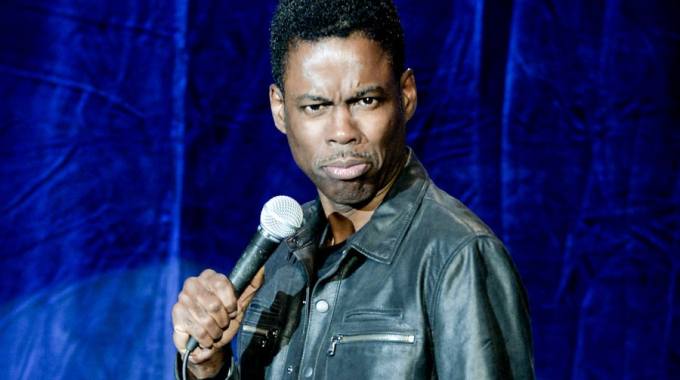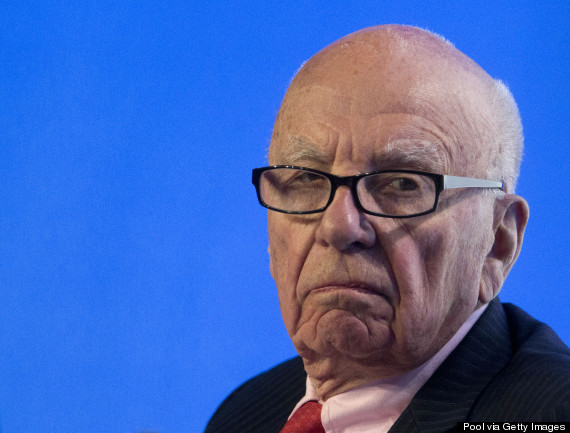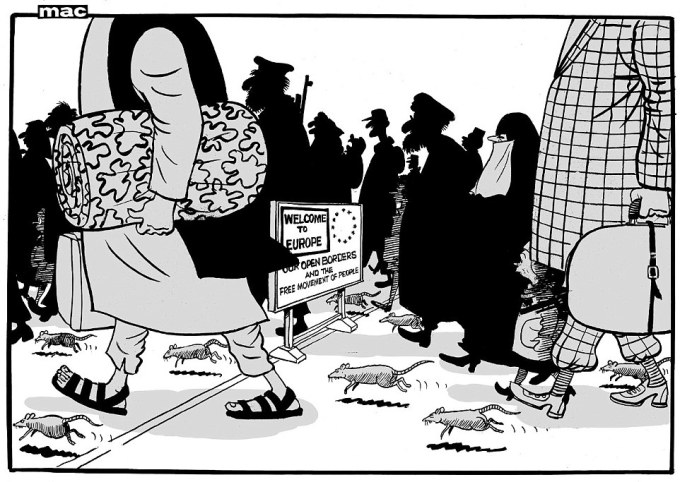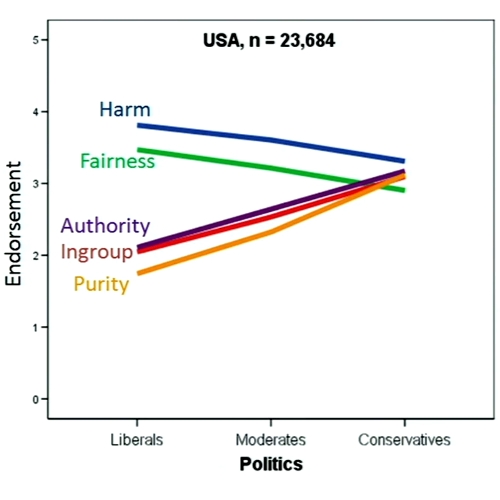Here in the west we are led to believe that if we work hard, obtain a good education and put our mind to it, we can achieve anything. This my friends is a blatant lie. It’s the kind of tale that encourages us to be introspective during moments of difficulty or even failure. We trawl through our lives looking for moments where we may have gone wrong; “possibly I should have worked harder at school. If only I’d have put more overtime in I might have got promoted” and so on. Today, however, I can reveal the secret to success, drum roll please…………………………the answer is, luck.
People who are unsuccessful tend to internalise their misfortune, rather than looking at other contributing factors such as; environmental issues, poor education, inadequate parenting or simply bad luck. On the other hand ‘successful people’ commonly declare that they have single-handedly earned everything that has been bestowed upon them. I’m here to tell you that the idea of a “self made man”, for want of a better phrase is bogus. Nobody gains any kind of success, economic or otherwise completely on their own, ever.
Throughout much of the world it is frequently the case that a disadvantaged child will be a disadvantaged adult. Kids with wealthier parents tend to go to the best schools, chiefly because houses in better catchment areas are estimated to be 42% more expensive. Richer kids also have access to nutritious food, opportunities to engage in ‘high culture’ and generally have a suitably quiet place to study. All this leads to poor, bright students being overtaken by less intelligent, wealthy kids in the first few years of schooling. Only 10% of children from the lower end of society make it to university. In contrast, 80% of kids attend university who have parents from a professional or managerial background.
Furthermore a child from private school is 55 times more likely to attend Oxbridge than a pupil in a state school receiving free school meals. Social mobility is indeed rare in the west, however, there is a marked increase in opportunity among more equal societies such as Scandinavia. Sadly in terms of income distribution the US and the UK are two of the most unequal nations on earth, which is reflected by the woeful social mobility observed in both countries. I must firstly qualify the graph below; this was originally taken from the Equality Trust website and has been doctored to highlight the differences between the UK/US and the Scandinavian countries in terms of social mobility. The original graph displayed other countries to the right, indicating even less social mobility namely; Peru, Brazil, Chile and Argentina.

At this point, I’m hoping you are starting to conclude that social mobility for the more disadvantaged portion of society is generally unattainable. Success for the rich, however, is almost inevitable, due to a myriad of factors as previously outlined. It’s not too much of an exaggeration to suggest that the dice are severely loaded in favour of the people who already hold a significant advantage. So, what about luck, you may ask. Well in 2015 the Harvard Business Review investigated the traits required to be a successful CEO.
Firstly the studies suggested that the positive effect of a CEO aptly named the ‘CEO effect’ varied from 2% to 22% depending on the industry. To arrive at this notion a 26 year study in Sweden measured inductive reasoning, verbal comprehension, spatial ability, and technical comprehension to measure key qualities required for a CEO position. Unsurprisingly CEO’s scored highly, but no more so than doctors, lawyers or engineers. These findings indicated that their innate skills in no way justifies the extraordinary pay these people often command. As an example a Swedish CEO receives a 1200% pay premium over an average worker.
Another reason that success of an actual CEO is thought to be based on luck, is a suggestion that CEO’s on obtaining the position quite often will have to gamble picking long term strategies which may or may not work. These actions undoubtedly will have a profound effect on a CEO’s longevity and perceived success. This guesswork is the product of not possessing a crystal ball and with no means of looking into the future any more than us mere mortals. If however, their guesswork pays off this is then calculated as part of the ‘CEO effect’ and is obviously claimed by the CEO as a completely calculated manoeuvre. A study by Markus Fitza from Texas A & M university in contrast to the Swedish study, concluded that the ‘CEO effect’ that is described as outcomes related to skill is likely to be around 4-5%, the rest is pure chance. This of course is despite what your boss may have you believe through company correspondence.
To push my ‘luck hypothesis’ further, in a recent study from the University of Catania, Sicily, scientists created a computer model of a 1000 people. Some were given more intelligence, talent and money, than the average worker, while others less. During a 40 year period a few of these people experienced “lucky events”, opportunities to boost their career in a way that could be exploited with their natural talent or intelligence. After a 40 year simulation the characteristics of the richest people were analysed. Although it was agreed that successful people did indeed possess some level of talent or intelligence, those who achieved the greatest success were invariably the luckiest. It was concluded by the authors that “maximum success never coincides with maximum talent and vice-versa”.
One of many attributes that is considered when examining success and how this is acquired is overconfidence. Results from one study indicated that overconfidence was often interpreted by many as competence. This in turn results in these self-assured bosses getting paid much more than they are actually worth. Not only that, but these types of people are generally more likely to be promoted, exacerbating their overconfidence, leading to a positive feedback cycle. In other words higher status people will often display these types of characteristics. As most bosses tend to employ like minded individuals, it is not inconceivable to suggest a whole layer of management at the same firm could indeed possess similar traits.

This behaviour is reinforced by the “just world” bias, which convinces us to believe that the rich and powerful deserve their attained positions in the world. This idea was confirmed in a study which noted that when a student heard that a fellow student had won a random prize, positive characteristics were linked to the winning student. Conversely people are equally misguided the other way and attach negative characteristics to victims. Additionally a paper from UC Berkley concluded that narcissistic CEO’s are paid more than non-narcissistic CEO’s. Following on from UC Berkley’s study, further enquiries could well invite you to consider what are the general personality types of people who obtain vast monetary riches.
This is hard to measure, but what we do know from studies by Paul Piff is the rich are generally meaner. Piff found that lower class individuals are more “generous, charitable, trusting and helpful”. The rich donate less to charity as a share of their income than the middle class, furthermore their decisions are predominantly based on the economic climate and self interest unlike the middle class. During laboratory experiments Piff discovered the wealthy are more likely to take valued goods, lie, cheat and generally behave badly, which is incidentally widely more tolerated if you are rich. This type of conduct is all relatively easy to explain with a help of a friend, who states, “in a society that values wealth, those with wealth are worshipped as well”, Karl Marx, 1844.
With this in mind let us highlight someone who fully embodies capitalism; let’s look at Bill Gates. To begin with, Bill Gates had an upper class background, allowing him to attend a school giving him access to computers. In this day and age this may sound absurd, but at this time only 0.01% of his generation had this kind of computer availability. With these facilities Gates could obtain extra programming practice, which according to Matthew Sayed who advocates in his book ‘Bounce’ that 10,000 hours of practice is essential for mastery, was a huge advantage for Gates. It didn’t harm matters either that Bill Gates’s mother had societal connections with the Chairman of IBM, this networking enabled him to gain a contract from what was at the time the largest PC company in the world.
Luck was a consistent factor for Gates during the process of obtaining the contract from IBM. Initially Gates was approached by IBM regarding the development of an operating system (OS), but as he had never built an OS he referred the request on to a programmer called Gary Kildall. However, Kildall’s talks with IBM broke down and IBM returned to Gates. At which point Gates bought another OS cheaply from Seattle Computer Products with the secret backing of IBM. It is certain that if Seattle Computer Products had known about IBM’s backing of Gates the price for the QDOS operating system would have soared.
Gates with Microsoft proceeded to tweak the system and re-named it DOS (disc operating system). He was also successful in negotiating a licensing agreement that allowed him to keep the DOS program, this eventually became the cornerstone of the Microsoft business. Now, nobody is suggesting Bill Gates isn’t intelligent or talented but without a substantial amount of luck Gates would never have had this amount of success or wealth and maybe we would never have heard of him.
So next time you hear the rich or their apologists suggesting that the elite do it all by themselves and are worth every penny they earn, maybe you could do some critical thinking and decide whether those remarks hold any water. It is undeniably true the rich require a whole gamut of skills and characteristics to be monetarily successful; self absorption, narcissism, overconfidence, intelligence, selfishness, some talent and of course lots of luck. But the story of meritocracy that needs to be perpetuated primarily by the ruling elite to maintain the status quo is a very tall one. Although, as right wing voters show there are plenty of useful idiots who will lap this misinformation up and will dutifully do the bidding for their rich masters when required.
The age old story that suggests the best people available will naturally rise to the top and that their ascent is driven purely by merit would be laughable if it wasn’t so derisory. An example of this fallacy is displayed on a daily basis in the form of Boris Johnson. A man who displays such a paucity of interpersonal skills, he should never be allowed within 1000 miles of public office, but still he lingers, currently as Prime Minister of the UK. This meritocracy fable is espoused by politicians and repeated endlessly by the media who are essentially from the same societal tribe. Gloomily, this narrative has one purpose, which is to keep the proletariat in their place, while trying to tap in to our subservient nature and lack of self belief. So while we collectively fail to muster the confidence to challenge the myth of class, capitalism and societal standing, the establishment will continue to talentlessly rule as they see fit.


 h as most CEO’s). Therefore, this idea of freedom works to a point, which in my mind is tempered by my more analytical side. This segment of my brain acknowledges utilitarianism as a compelling philosophical counterweight, Jeremy Bentham states; “it is the greatest happiness of the greatest number that is the measure of right and wrong”. This statement strongly resonates with me, in his book Moral Tribes Joshua Greene describes utilitarianism as ‘
h as most CEO’s). Therefore, this idea of freedom works to a point, which in my mind is tempered by my more analytical side. This segment of my brain acknowledges utilitarianism as a compelling philosophical counterweight, Jeremy Bentham states; “it is the greatest happiness of the greatest number that is the measure of right and wrong”. This statement strongly resonates with me, in his book Moral Tribes Joshua Greene describes utilitarianism as ‘





 ogans such as ’79 cents on the dollar’ for women to rally around and often get angry at men who question it. When in reality there is a difficulty getting to the top, where you will find the very politicians and corporate leaders trumpeting ‘the gender pay gap’. The good news is there is an excellent reason for companies to increase the amount of women employed at the top end, that is, corporations and organisations alike gain substantially. Greater gender diversity is associated with an innovative work culture and from a bottom line perspective, woman in the boardroom is linked to a 15% profit increase. Reading further down the previously mentioned
ogans such as ’79 cents on the dollar’ for women to rally around and often get angry at men who question it. When in reality there is a difficulty getting to the top, where you will find the very politicians and corporate leaders trumpeting ‘the gender pay gap’. The good news is there is an excellent reason for companies to increase the amount of women employed at the top end, that is, corporations and organisations alike gain substantially. Greater gender diversity is associated with an innovative work culture and from a bottom line perspective, woman in the boardroom is linked to a 15% profit increase. Reading further down the previously mentioned 

 Irritants such as
Irritants such as 

 mployed to investigate benefit fraud, which loses roughly £1.2bn per year. This glaringly obvious contrast in the number of officers assigned to each area indicates to me that the powers that be are not remotely interested in chasing down tax criminals and that this pretence of addressing it is nothing more than ‘window dressing’. New Zealand doesn’t escape the charge of targeting the poor markedly more than the rich either. The figures show a similar story in the southern hemisphere, whilst benefit fraud swindles $30.6 million from the tax coffers, tax fraud wrestles $1.24billion from the government’s grasp. Hopefully with the recent arrival of Prime Minister Ardern, this diabolical trend of socialism for the rich and capitalism for the poor will end.
mployed to investigate benefit fraud, which loses roughly £1.2bn per year. This glaringly obvious contrast in the number of officers assigned to each area indicates to me that the powers that be are not remotely interested in chasing down tax criminals and that this pretence of addressing it is nothing more than ‘window dressing’. New Zealand doesn’t escape the charge of targeting the poor markedly more than the rich either. The figures show a similar story in the southern hemisphere, whilst benefit fraud swindles $30.6 million from the tax coffers, tax fraud wrestles $1.24billion from the government’s grasp. Hopefully with the recent arrival of Prime Minister Ardern, this diabolical trend of socialism for the rich and capitalism for the poor will end.
 This was known unimaginatively by the press as ‘Jacindamania’, which has only slightly started to wane over the last few weeks, primarily because her mention of the dreaded ‘T’ word, that is taxes. Then
This was known unimaginatively by the press as ‘Jacindamania’, which has only slightly started to wane over the last few weeks, primarily because her mention of the dreaded ‘T’ word, that is taxes. Then  swept to the top job with Labour in 1997. Both leaders were similar with their liberal rhetoric and easy charm. At the heart of their success, however, was an adherence to a market economy, which managed to sway the support of the corporations and the media. Both Clinton and Blair accomplished the task of achieving relative longevity by balancing neoliberal economic policies, while offering social justice concessions. With this heady cocktail of ideas, often known as the 3rd way, both were able to successfully lure the electorate. Clinton brought in the
swept to the top job with Labour in 1997. Both leaders were similar with their liberal rhetoric and easy charm. At the heart of their success, however, was an adherence to a market economy, which managed to sway the support of the corporations and the media. Both Clinton and Blair accomplished the task of achieving relative longevity by balancing neoliberal economic policies, while offering social justice concessions. With this heady cocktail of ideas, often known as the 3rd way, both were able to successfully lure the electorate. Clinton brought in the  The newly crowned Finance Minister
The newly crowned Finance Minister  Ruth Richardson was now the Finance Minister and was prepared to put free-market capitalism on steroids. It was their goal to privatise anything that wasn’t nailed down, including health, education, while reducing unemployment, sickness and welfare benefits. Active campaigns using adverts and TV programmes were used to demonise welfare recipients such as benefit cheats, unfortunately the same amount of effort was not expended on tax evaders/avoiders. Like their traditional opponents the National government were happy to maintain high levels of unemployment purposely to keep wages low and therefore, inflation low. Any collective in the form of unions which opposed these draconian reforms were systematically dismantled, with the Employments Contract Act. This intentionally individualised the employment relationship and pitted employee versus employee, this also had the dramatic effect of lowering wages. Although Ruth Richardson was gone by 1993, the National government continued until 1999. By then the die was cast, most people didn’t know any better than capitalism and consumption. The incoming Labour government led by Helen Clark managed to put the breaks on runaway capitalism, but by then individualism and consumerism were ingrained on a national psyche that once stood for egalitarian values.
Ruth Richardson was now the Finance Minister and was prepared to put free-market capitalism on steroids. It was their goal to privatise anything that wasn’t nailed down, including health, education, while reducing unemployment, sickness and welfare benefits. Active campaigns using adverts and TV programmes were used to demonise welfare recipients such as benefit cheats, unfortunately the same amount of effort was not expended on tax evaders/avoiders. Like their traditional opponents the National government were happy to maintain high levels of unemployment purposely to keep wages low and therefore, inflation low. Any collective in the form of unions which opposed these draconian reforms were systematically dismantled, with the Employments Contract Act. This intentionally individualised the employment relationship and pitted employee versus employee, this also had the dramatic effect of lowering wages. Although Ruth Richardson was gone by 1993, the National government continued until 1999. By then the die was cast, most people didn’t know any better than capitalism and consumption. The incoming Labour government led by Helen Clark managed to put the breaks on runaway capitalism, but by then individualism and consumerism were ingrained on a national psyche that once stood for egalitarian values. This was of course total rubbish, but it didn’t matter, it had the desired effect. In the right-wing world there is no requirement to tell the truth only the result matters. These tactics were designed to make Labour seem indecisive regarding taxes, at the same time slowing the Jacinda effect. My thoughts are Jacinda Adhern should have been bold the moment she took office, stating; these are the problems, this is what we’ll do, this is why we’ll do it and here’s how we’ll pay. Obviously the only way they could pay is through taxes. Bizarrely, New Zealand, appears to be tax phobic, which would indicate that the people are heavily taxed. This couldn’t be further from the truth, tax is a little less than most OECD countries and is a lot less progressive than it once was (top tax rate was 66%). Tax is obviously spent on services such as health, education, police, prisons and welfare. Therefore, what we pay on tax is directly linked to what sort of services we want in New Zealand. Tax is no more than the pooling of our resources to make the nation better. Scandinavia is well known for their high taxes, but have an excellent standard of living, often topping rankings in; education, low crime, good health outcomes and excellent social cohesion. Tax isn’t the only solution to problems in New Zealand or anywhere else for that matter, but it does offer a means to improve services and reduce inequality.
This was of course total rubbish, but it didn’t matter, it had the desired effect. In the right-wing world there is no requirement to tell the truth only the result matters. These tactics were designed to make Labour seem indecisive regarding taxes, at the same time slowing the Jacinda effect. My thoughts are Jacinda Adhern should have been bold the moment she took office, stating; these are the problems, this is what we’ll do, this is why we’ll do it and here’s how we’ll pay. Obviously the only way they could pay is through taxes. Bizarrely, New Zealand, appears to be tax phobic, which would indicate that the people are heavily taxed. This couldn’t be further from the truth, tax is a little less than most OECD countries and is a lot less progressive than it once was (top tax rate was 66%). Tax is obviously spent on services such as health, education, police, prisons and welfare. Therefore, what we pay on tax is directly linked to what sort of services we want in New Zealand. Tax is no more than the pooling of our resources to make the nation better. Scandinavia is well known for their high taxes, but have an excellent standard of living, often topping rankings in; education, low crime, good health outcomes and excellent social cohesion. Tax isn’t the only solution to problems in New Zealand or anywhere else for that matter, but it does offer a means to improve services and reduce inequality.



